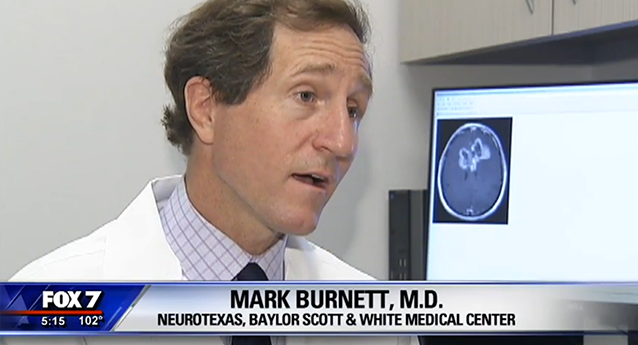The recent brain cancer diagnosis for Senator John McCain has brought much discussion about glioblastoma. A neurosurgeon spoke with FOX 7 about it Thursday.
The war hero who endured more than five years in captivity and a lengthy fight with melanoma faces a new enemy called glioblastoma.
According to Baylor Scott and White Neurosurgeon Mark Burnett, M.D. of Neurotexas, this enemy cannot be defeated.
“It’s a tumor that in general we think of having a survival that’s less than two years,” said Burnett.
It is the same type of cancer that took the lives of Senator Ted Kennedy and former Vice President Joe Biden’s son Bo.
Symptoms depend on the location of the tumor. In McCain’s case it was in the frontal lobe.
“That would involve things like memory, personality and cognition. Some things people have been noticing with Senator McCain in the news is maybe he’s bene having confusion and that would be one symptom that would show. Otherwise people can show up with headaches, particularly in the morning time and seizures,” said Burnett.
Burnett says surgery is the first course of action. But it does not provide a cure.
“It’s not as if this tumor is in there like a golf ball. They can talk on television about it being a two centimeter blood clot, but that’s just what you see on the scan. There are little bits of the tumor that extend in what looks like normal brain on the scan and those as just tiny cells that are able to follow the brain pathways and invade other areas of the brain that we can’t even see. If you wait and don’t have surgery, you would see on the MRI, over a course of weeks and months, the tumor would expand and look bigger on the MRI and you would see other areas that would grow almost like tentacles from the tumor,” said Burnett.
Burnett says surgery is simply done to give a patient a better quality of life.
Follow up treatment includes chemotherapy, radiation and most recently immunotherapy- a treatment that uses the patient’s immune system to attack the cancer.
Burnett says tumors can have a genetic linkage. More studies into that seem to offer a glimmer of hope.
“We’re really beginning to drill down on those genetic pathways so that we can find drugs that can short-circuit the tumor and hopefully help us in addition to surgery be able to have a better outcome,” said Burnett.


